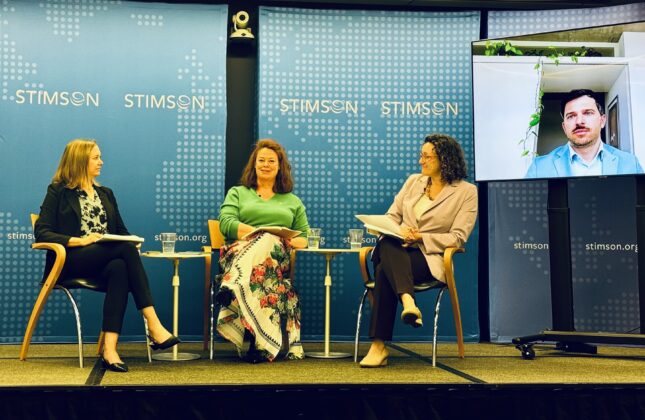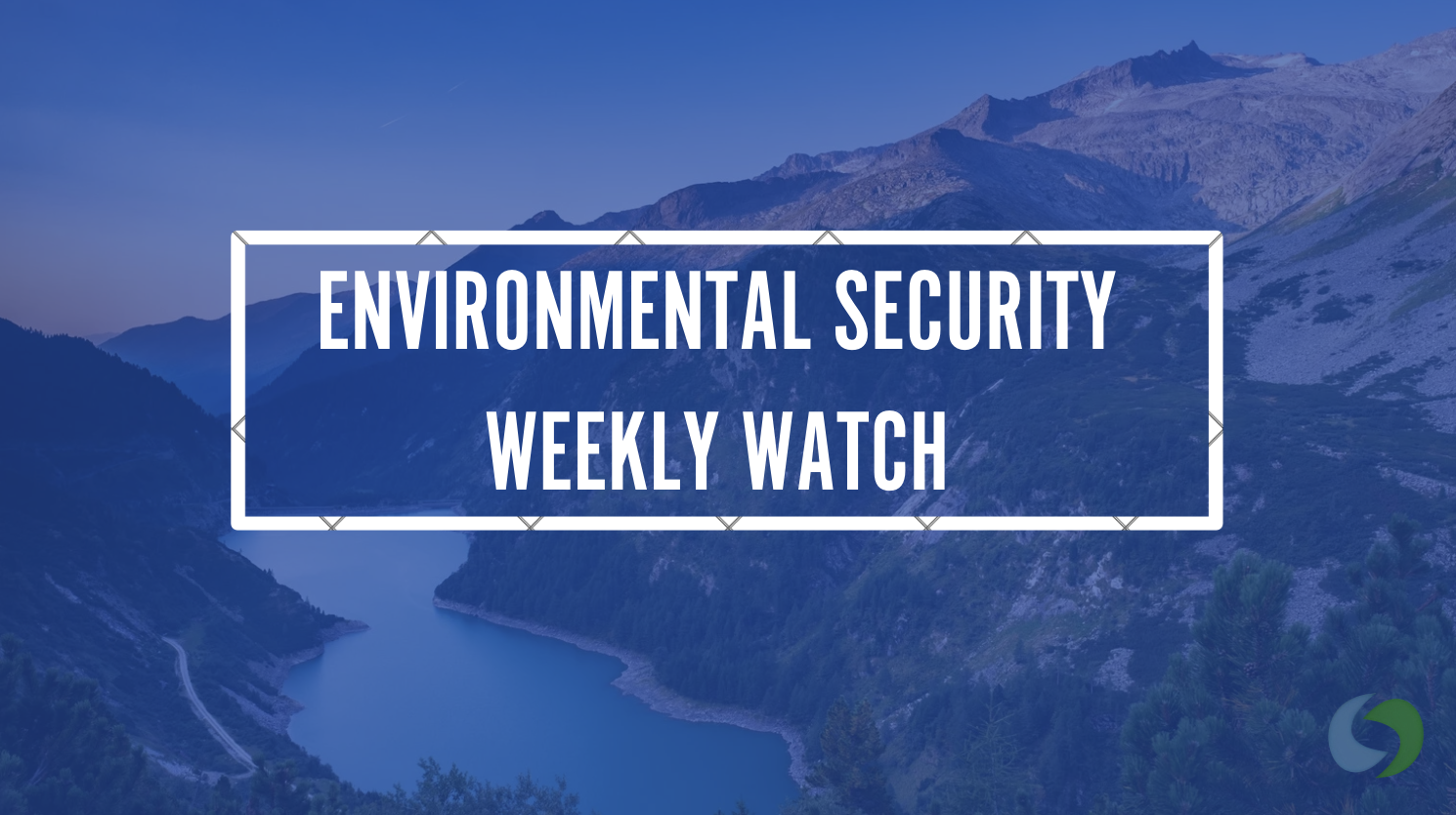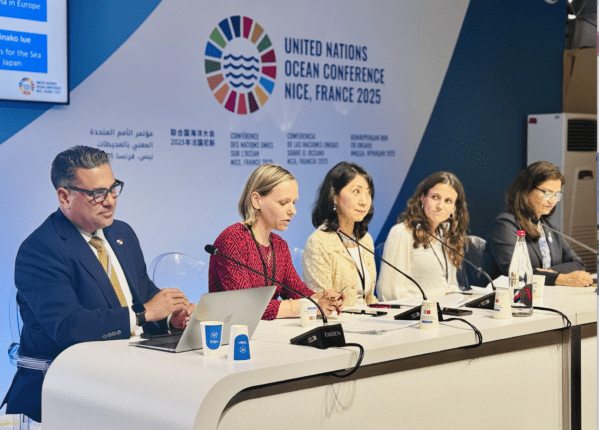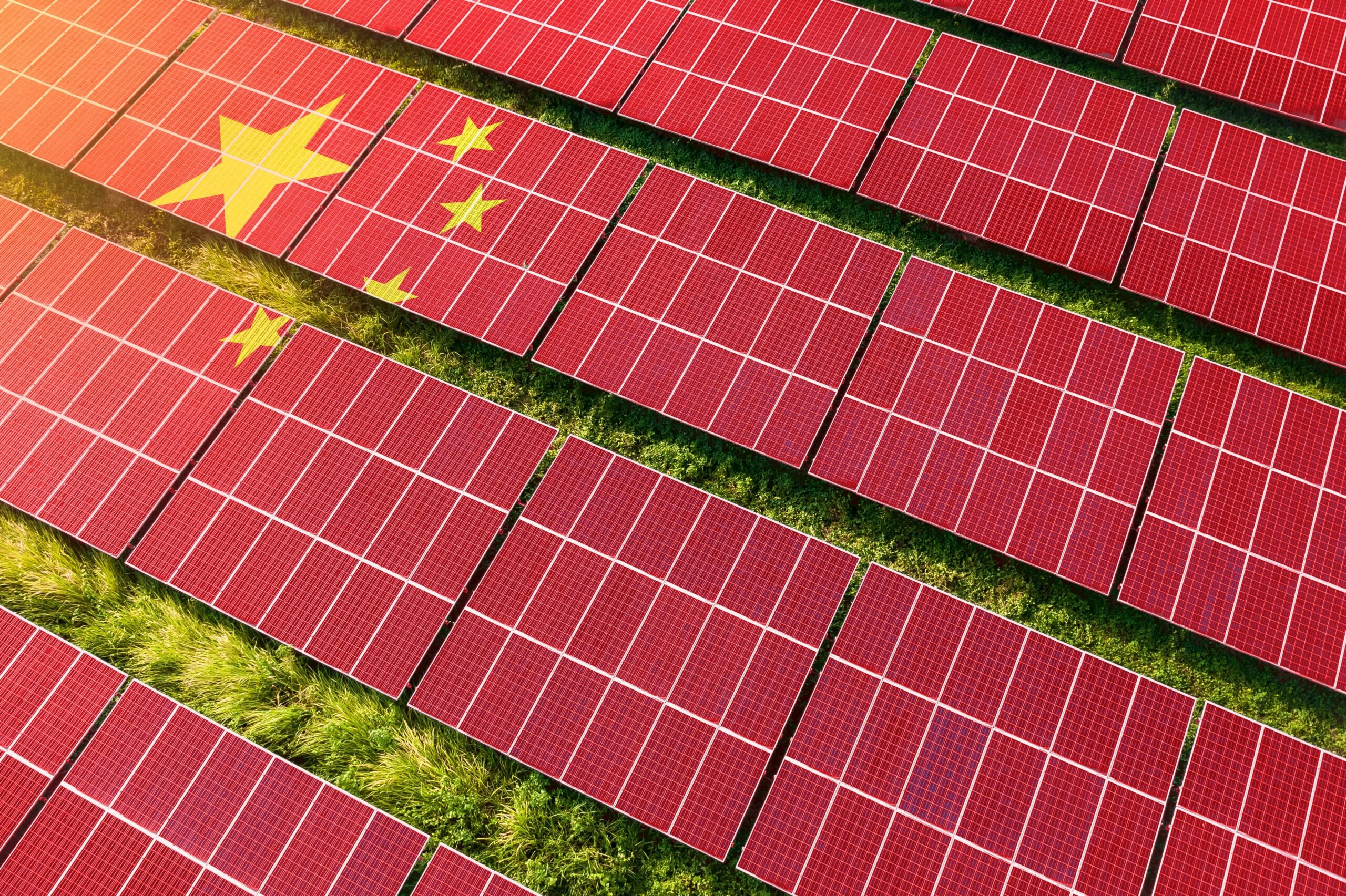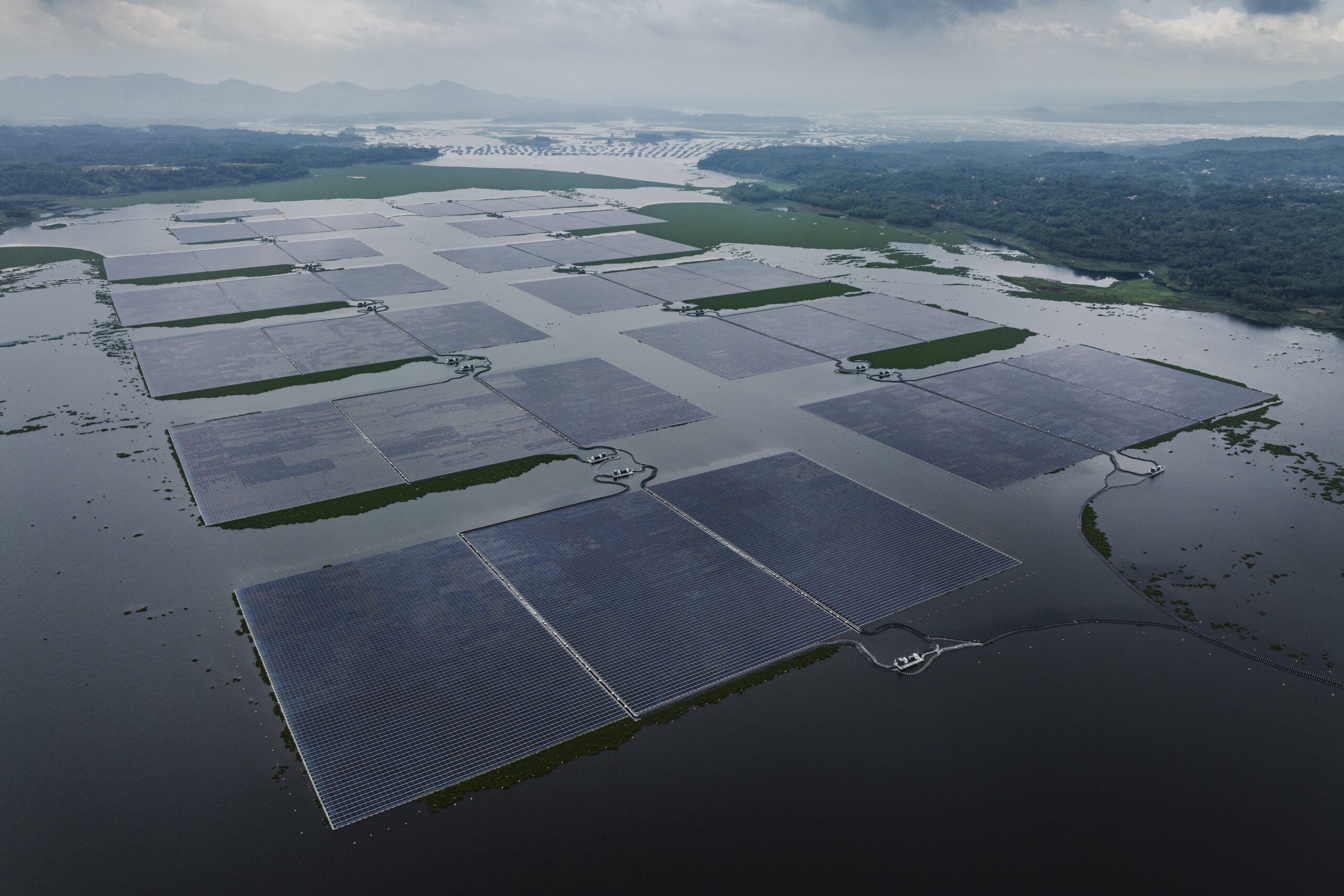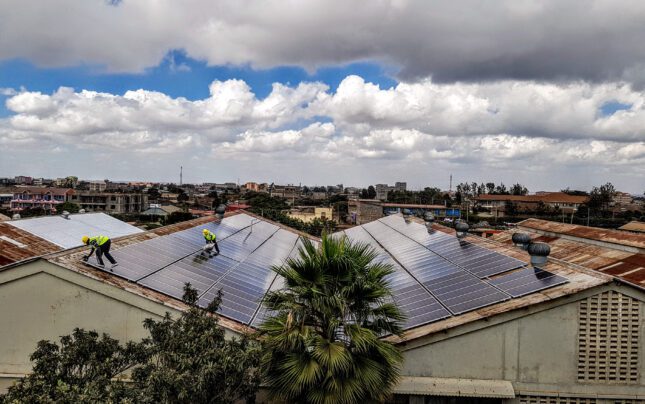-
From Readiness to Resilience: Strengthening Institutions for Climate Action
›November 12, 2025 // By Stephanie SpeckThis article was adapted from Stephanie Speck’s remarks at the 2025 Berlin Climate Security Conference.
When I arrived in Mogadishu in 2013 to set up and lead the Office of the President’s communication and media department, I had the privilege of being invited to breakfast with the President. As I made my way through the layers of security leading to the presidential residence, I noticed an older woman walking behind me—cradling a chicken under each arm. She followed closely, undeterred by the checkpoints that stopped others.
-
Closing the Climate Finance Gap in Fragile States
›November 11, 2025 // By Madelyn MacMurrayA massive flood in Somalia killed hundreds of people, and displaced tens of thousands more. Yet the survivors faced a vexing prospect when they tried to return home: Al-Shabab had moved in.
Stephanie Speck, Head of Special Initiatives at the Green Climate Fund, observed at a recent Stimson Center event that Shabab’s new levies meant that residents could not to move back to farm their land.
-
Environmental Security Weekly Watch: September 22-26, 2025
›
A window into what we’re reading at the Stimson Center’s Environmental Security Program
High Seas Treaty Passes UN Ratification Threshold for Implementation (New York Times)
Last week, the High Seas Treaty reached 60 ratifications in the United Nations, crossing the threshold to take effect and triggering a four-month countdown to full implementation. The agreement creates a comprehensive regulatory framework to protect all international waters beyond any single country’s jurisdiction.
-
Environmental Security Weekly Watch: September 8-12, 2025
›
A window into what we’re reading at the Stimson Center’s Environmental Security Program
New Report On Women’s Access to UN Indigenous and Community Land Rights Funding (Mongabay)
A study published by the Rights and Resources Initiative and the Women in the Global South Alliance reveals that despite the central role women play in conservation and community resilience, 50% of women’s organizations lack core funding and rely heavily on volunteer labor. The report assessed how network members are benefitting in real terms from the $1.7 billion in funding for Indigenous and community land rights pledged at the 2021 UN climate conference.
-
Three Takeaways From the Third UN Ocean Conference
›July 10, 2025 // By Carolyn Gruber
“There cannot be a healthy planet without a healthy ocean. It’s urgent business for us all,” said U.N. special envoy for the ocean, Peter Thomson, at last month’s UN Ocean Conference (UNOC).
Hosted in Nice, France, the conference brought together more than 15,000 political leaders, scientists, civil society, the private sector, academic institutions, Indigenous peoples, local communities, and philanthropic organizations with the goal of identifying innovative ways to finance and mobilize action for the ocean.
-
China’s Role in Financing the Energy Transition in the Global South
›China and the Global Energy Transition // China Environment Forum // Guest Contributor // February 13, 2025 // By Muyi Yang & Xunpeng ShiAs the world inches closer to the critical 1.5°C warming threshold, the demand for decisive climate leadership has never been more pressing. The US withdrawal from the Paris Agreement on January 20, 2025 has left a leadership void. The confluence of these events also has raised the question of whether China can do more to fill the finance gap and help Global South countries decarbonize.
-
Can China Fuel Indonesia’s Clean Energy Transition?
›China and the Global Energy Transition // China Environment Forum // Guest Contributor // Vulnerable Deltas // January 30, 2025 // By Jacob DreyerIndonesia’s economy is on a roll. The archipelago nation harbors ambitions for 8% growth a year on its growing strength as an exporter of coal, palm oil, LNG, and stainless steel made from its booming nickel mining industry.
Investments from China are driving this growth—and run the gamut from traditionally dirty industries (mining, steel, and aluminum) to the crown jewels of Chinese clean energy tech: batteries, electric vehicles (EVs), and solar panel production. In 2023, Xinyi Glass, the world’s largest solar PV panel maker, announced an 11.5 billion USD investment in a quartz sand processing plant in Indonesia.
-
US-Africa Energy Development: An Opportunity for the Trump Administration?
›China Environment Forum // Guest Contributor // December 12, 2024 // By Kalim Shah & Etchu Tabenyang
While traditional fuels likely will remain part of Africa’s energy portfolio for some time to come, the fossil fuel industry does face strong headwinds from a continuing global march towards alternative sources of clean energy. Indeed, the energy poverty experienced by nearly a billion Africans seems incomprehensible given the combination of massive untapped oil and gas resources, as well as available hydropower, solar and wind potential across the continent.
Showing posts from category climate finance.



